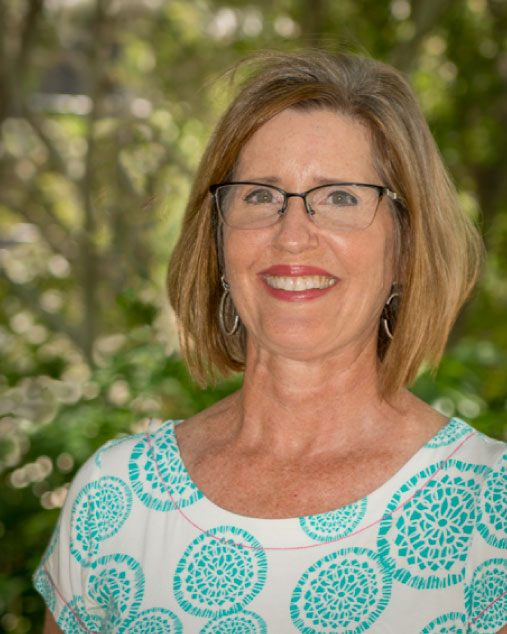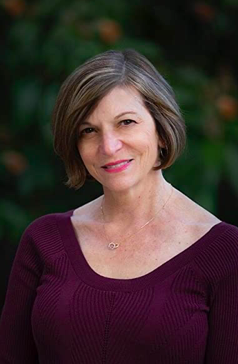An interview with
Rachel Michelberg, author of Crash.

Julie McGue
Author

Rachel Michelberg
Author

American author, Rachel Michelberg grew up in the San Francisco Bay Area and still enjoys living there with her husband, Richard, and their two dogs. Rachel’s memoir, CRASH: How I Became a Reluctant Caregiver, is her first book.
Rachel likes to think of herself as a nice Jewish girl, dedicated to doing what’s honorable, just as her parents raised her to do. But when her husband, David, survives a plane crash and is left with severe brain damage, she faces a choice: will she dedicate her life to caring for a man she no longer loves, or walk away?
Crash tackles a pervasive dilemma in our culture: the moral conflicts individuals face when caregiving for a disabled or cognitively impaired family member.
I caught up with Rachel in between her duties as mother, wife, voice performer, and instructor of voice and piano.
At the time of the crash, your marriage was not going well, but you put the past aside to care for David. Tell us about what you grappled with.
At first, the past wasn’t relevant. David was completely debilitated and dependent on me for his care; I was the one making all of the medical and legal decisions for him. Regardless of my discontent in our marriage, I was going to do everything in my power to make sure he was receiving the best care available.
As time passed, when it became obvious that he’d need 24/7 care and supervision for the rest of his life, it became clear that our marriage – good or bad – was no longer a viable entity. Aside from his considerable physical disabilities (seizures, incontinence) David would always have the emotional/cognitive abilities of a seven-year-old. He would not have the capacity to be a partner to me or parent our children. I had to face that reality.
What made you decide to write about this experience?
During the year following the plane crash, (in addition to therapists, friends and family) I turned to books for comfort. I found narratives of horrific accidents and spouses miserable and resentful of the caregiving role, but who rose to the challenge. I didn’t find my story – the rejection of that role. I knew it needed to be told. I wanted others in my position to know they’re not alone and give themselves permission to consider their options. Then it became a compulsion, I couldn’t rest until I’d told my story. But there was a problem – although writing always came easily to me, I had no real experience. So, I started taking classes in order to learn the craft. It took me eleven years in total to complete the manuscript.
Was it healing to share your story? What was the hardest part of writing this book?
I’m often asked if I wrote my book to process my feelings around the trauma of David’s accident. Until I published, the answer was always no; rather, I felt compelled to write this narrative of rejecting the caregiving role. Since publication however, I’ve come to realize that it was indeed part of my healing process.
One of Crash’s main themes is guilt – in fact the original subtitle was “a memoir of guilt, motherhood and survival” but my publisher, Brooke Warner, wanted to include the word “caregiving.” At some point after the launch, while promoting the book on interviews, podcasts and e-interviews, I realized that I didn’t feel guilty anymore. It was so freeing.
The hardest part? Reliving the trauma, definitely. Placing myself back in those hospital rooms, law offices. In the rooms where tears flowed and fear was all-consuming. Yet I knew I had to dig deep, to go to those dark places, in order to do the story justice and truly reach the reader.
You made the difficult and painful decision not to be David’s caregiver long-term. How was this decision received?
Not well.
That friction is a significant narrative arc in my story. David’s family overseas (Germany and Israel) were upset, even hiring lawyers to take control of David’s care. His sister wanted to bring him to Israel, but I’d been advised repeatedly by my attorneys to wait until the personal injury lawsuit was resolved before making any changes (he was in a residential brain injury facility.) I didn’t like him being in the facility either, even though I thought he was receiving good care. It was an impossible situation.
Your book addresses the issues and questions you and your family faced in deciding how to give David the best possible life he could have. What pressures did you face, as a caregiver? What support did you receive?
Every day I worried about David’s happiness. I made a commitment to visit him with the children at least once a week – the facility was a half hour from our home. I also arranged for him to be brought home for an afternoon/dinner, and to the children’s performances and events – dance concerts, plays, etc. David’s family still pressured me to move him from the facility into a private apartment with a full caregiver, against advice from the social workers, therapists and attorneys.
My own friends and family and many of David’s friends and work colleagues were fully there for me, offering to watch the kids, sometimes visiting him and/or coming to a meal at our home when David was there. The therapists and social workers were a crucial part of my support team as well.
How is everyone in the family now? What is life like for David now? What are you working on?
Everyone is good! David did move to Israel – about four years after the accident. He lives in an attached home (next to his sisters’) and has a full-time caregiver he loves. He has deteriorated physically and cognitively, but I’m told he still manages to find some joy. In the pre-Covid years, both kids (adults now) visited him about twice a year. We’re all hoping that restrictions will lift soon, and they can travel to Israel again. Our daughter lives and works in San Francisco, our son graduated from college in the spring and will be pursuing a teaching credential. I’m remarried (to a particle physicist!) and enjoy cooking, gardening, and teaching singing and piano (my day job.) I’m working on essays, blog posts and – of course – publicizing Crash. No second book on the horizon yet, but I’ve not ruled it out!
Learn more about Rachel at
www.rachelmichelbergauthor.com
Follow her here:
“Crash tackles a pervasive dilemma in our culture: the moral conflicts individuals face when caregiving for a disabled or cognitively impaired family member.“
Don’t miss a blog post!
Receive my blog posts directly to your inbox.


